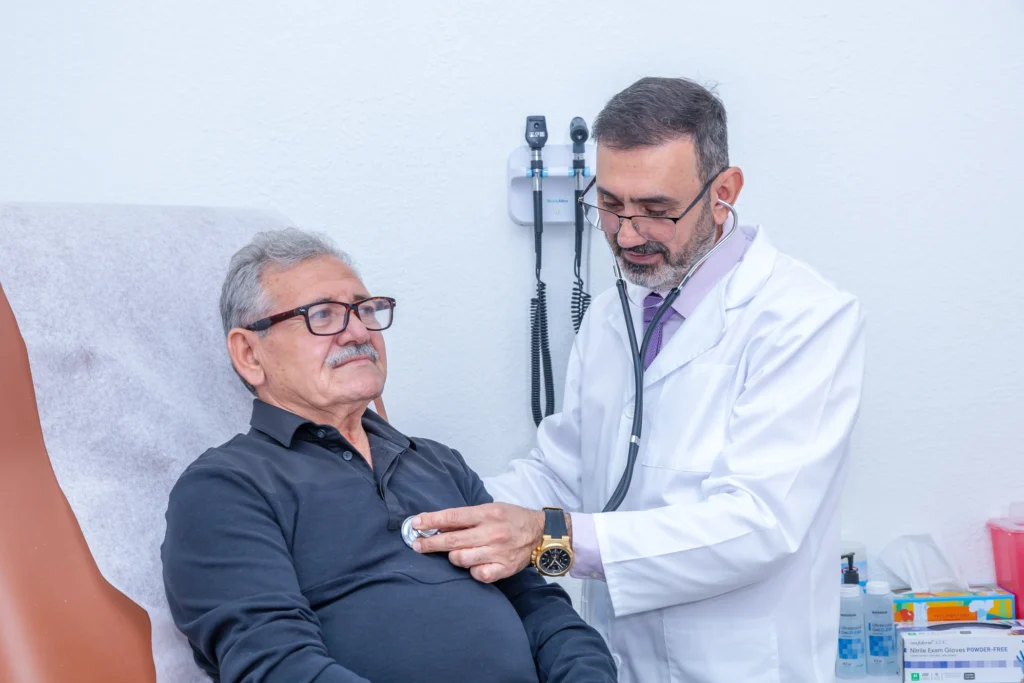Worried about when to get your first Pap smear? Confused about what a well-woman exam even *is*? You’re not alone! We know that navigating women’s health can feel overwhelming, especially with all the different recommendations and changing guidelines. Our goal at Dr. A Patient Care, located near Louetta Rd at 5523 Louetta Rd STE C, Spring, TX 77379, is to make it easier. Lets break down what to expect in your 20s, 30s, and beyond.
Navigating Women’s Health Exams in Your 20s, 30s, and Beyond
Understanding the recommended health screenings and exams at different stages of life empowers you to take control of your well-being. We believe in personalized care, so these are general guidelines, and your specific needs may vary. Always consult with a healthcare professional for tailored advice.
Your 20s: Building a Foundation for Health
This decade is crucial for establishing healthy habits and getting baseline screenings.
- Pelvic Exam and Pap Smear: Typically starts at age 21, regardless of sexual activity. The Pap smear screens for cervical cancer. Frequency is usually every 3 years if results are normal, but guidelines can vary, so its important to discuss this with your doctor.
- STI Screening: Important if you are sexually active. Tests for chlamydia, gonorrhea, HIV, and syphilis are common.
- Breast Exam: Clinical breast exams may be performed by your doctor. We can discuss self-exams and what to look for.
- HPV Vaccine: If you haven’t already, consider completing the HPV vaccine series. It protects against strains of HPV that can cause cervical cancer and genital warts.
- Contraception Counseling: Discuss your options and find a method that suits your lifestyle.
- Wellness Exam: This is also a great time for a wellness visit to discuss your general health, lifestyle, and any concerns you might have.
Your 30s: Maintaining Momentum
Continue with the screenings from your 20s and be aware of some new considerations.
- Pap Smear and HPV Co-testing: Guidelines may shift to Pap smears every 3 years or Pap smear with HPV co-testing every 5 years, depending on your history and test results.
- Pregnancy Planning: If you’re considering starting a family, preconception counseling can help you optimize your health.
- Mental Health Screening: This is a great time to address any anxiety, stress, or mood changes you might be experiencing. Learn more about our mental health support.
- Family History Review: Update your doctor on any changes in your family’s medical history, as this can influence your risk for certain conditions.
Your 40s and Beyond: Adapting to Changes
As you enter your 40s and beyond, hormonal changes become more significant, and certain health risks increase.
- Mammograms: Annual mammograms are generally recommended starting at age 40 or earlier if you have a family history of breast cancer.
- Colon Cancer Screening: Starting at age 45, colonoscopies or other screening methods are recommended.
- Bone Density Screening: Your doctor may recommend a bone density scan to check for osteoporosis, especially after menopause.
- Menopause Management: Discuss symptoms and treatment options for perimenopause and menopause.
- Heart Health Assessment: Regular blood pressure and cholesterol checks become even more important. We offer convenient blood pressure checks here at Dr. A Patient Care.
- Consider a generic medical screening to stay up to date on overall health: generic medical screening
Frequently Asked Questions About Women’s Health Exams
What is a Well-Woman Exam?
A well-woman exam is a comprehensive checkup that focuses on your reproductive and overall health. It typically includes a pelvic exam, breast exam, discussion of your medical history, and any necessary screenings.
How Often Do I Need a Pap Smear?
Current guidelines generally recommend Pap smears every 3 years for women aged 21-29. For women aged 30-65, Pap smears every 3 years, HPV testing every 5 years, or Pap/HPV co-testing every 5 years may be recommended. Talk to your doctor to determine what’s best for you.
What if My Pap Smear Results are Abnormal?
An abnormal Pap smear result doesn’t necessarily mean you have cancer. It usually indicates that there are some changes in the cells of your cervix. Your doctor will likely recommend further testing, such as a colposcopy, to investigate further.
Is a Pelvic Exam Necessary Every Year?
The need for a pelvic exam every year is a topic of debate. Current recommendations suggest that pelvic exams are not always necessary for women without symptoms. However, it’s important to discuss your individual needs and concerns with your doctor.
How Can I Prepare for My Well-Woman Exam?
Schedule your appointment when you are not menstruating. Write down any questions or concerns you have. Be prepared to discuss your medical history, sexual activity, and any medications you are taking.
Staying informed about your health is a lifelong journey. If you’re in the Louetta Rd area and have any questions or concerns about women’s health exams, don’t hesitate to reach out. We at Dr. A Patient Care are here to help you navigate your healthcare needs. Whether you need a preventative screening, vaccinations or just want to discuss your general health, we’re here to help. To make things as simple as possible, you can book a consultation through our website at a-patientcare.com/get-a-consultation/, or give us a call at 346-550-8220.
Remember, prioritizing your health is an investment in yourself. Let’s work together to ensure you receive the best possible care when Navigating Women’s Health Exams in Your 20s, 30s, and Beyond near Louetta Rd.
“`

